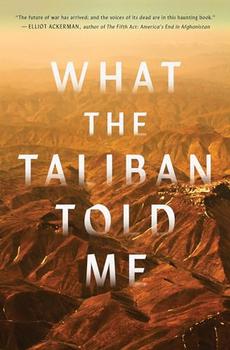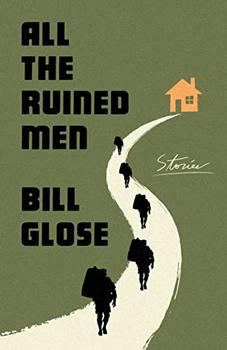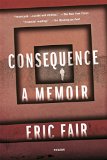Summary | Excerpt | Reviews | Beyond the book | Read-Alikes | Genres & Themes | Author Bio

At eighteen, writer Ian Fritz escaped his aimless life in a trailer park in Lake City, Florida, by enlisting in the Air Force to become an airborne cryptologic linguist. In his memoir What the Taliban Told Me, Fritz reflects on his evolution from a brash linguistics upstart to a broken young man realizing the human consequences of his knowledge and training.
Beginning with his high school years, when he spent his days working at a Chinese restaurant to pay his mother's neglected bills, Fritz pinpoints the one constant in this chaotic period: his love of languages and his plans to study philology in college. But his admittedly lazy and indifferent nature in high school resulted in lackluster grades and college application rejections. Recalling an Air Force recruiter in his tenth-grade class mentioning that as an airborne linguist "you got a fat signing bonus, the Air Force taught you a language of your choice, and ... you used that language to spy on people from a jumbo jet ...," Fritz reached out to a local recruiter after graduation, did reasonably well on the difficult Defense Language Aptitude Battery (DLAB) test, and was winging his way to basic training in 2008.
After graduation, Fritz was sent to the Defense Language Institute in Monterey, California, and his chatty narrative of learning Dari and Pashto (the main languages of Afghanistan) is both entertaining and enlightening. Most interestingly, he documents the cerebral shift from learning the structure of the Dari language to truly absorbing it: "It wasn't until I began engaging with the language, trying to understand how it worked, why words meant the things they did, that Dari began to change the way I thought about the world."
But it would be his knowledge of Pashto that would forever alter the course of his life because "I was told, not everyone who speaks Pashto is a Talib, but every Talib does speak Pashto, so if you hear it, expect bad shit..." His deployment to Afghanistan as one of the most elite of airborne cryptologic linguists—a direct support operator—put Fritz onboard low-flying gunships thousands of feet in the air above Afghanistan, listening to the Taliban's communications on the ground. Thus begins a rare inside look at what airborne linguists do, and Fritz excels at describing difficult and highly technical processes in a way most can understand. He is also bitingly funny while doing it.
But underneath the pages of sarcastic, stream-of-consciousness riffing that Fritz relies on too heavily—run-on sentences are not a reader's friend—there is a palpable sense of a man grappling with his role in raining death on the heads of human beings below him. The reader sees the progression from the gung-ho airman who believes in the Taliban as "evil" (and the Americans as the "good guys") to a man who listens to their boring, banal (but sometimes funny) conversations day after day and begins to see them as something else: human. He argues that "the malevolent can be filled with the mundane" and "the Taliban weren't bad all of the time." He begins to question the "war" that he claims was no war at all and does not celebrate Osama bin Laden's death, nearly getting into a fight with a fellow airman over it.
His self-admitted contrarian nature during his deployment to Afghanistan increased Fritz's sense of isolation and alienation. As he bluntly puts it: " ... the gunship didn't feel like home anymore. I no longer wanted to live among the memitim (biblical destroying angels), to aspire to Azrael. I was tired of killing people. You can't be a gunship guy and be tired of killing people. You most definitely cannot be on a gunship and talk about being tired of killing people."
Fritz's account possesses a raw interiority as he dissects his thoughts and mental health concerns, which culminate in his decision to no longer deploy, effectively ending his Air Force career at the end of his enlistment in 2013. Never diagnosed officially with PTSD, Fritz believes another term the military has recently embraced is more apt: moral injury (see Beyond the Book). The cognitive dissonance that drone operators feel after tracking their human prey for days, weeks or months, and then killing that person is a precise example of moral injury: they are killing someone they have come to know. A similar "closeness" to the enemy—listening to their unfiltered, highly personal radio transmissions—blurs the differences between the good and bad guys for Fritz: "Because I could hear it all, both sides of this strange and eternal war, the boundary that was supposed to separate them from us no longer existed. Even if I only spent six hundred hours listening to the Taliban ... I spent thousands of hours hearing them in my head, building their camaraderie, telling me it was too cold to jihad, or breathing their friend's last breath."
While Fritz's experience is compelling and uncomfortable at turns, his writing style alternates between defensiveness and offensiveness (literally so for some readers, as he is overly fond of the f-word). The book unfortunately loses some of its poignancy towards the end as he shifts from reminiscence to soapbox, ready to argue with an undefined "you" about the validity of the war and America's role in it. Not everyone will care for his position or the crassly worded way in which he often delivers it, but Fritz has earned his time at the podium.
What the Taliban Told Me is essential reading for those with an interest in America's recent wars and the toll our military personnel have paid—and continue to—for their service.
![]() This review was originally published in The BookBrowse Review in January 2024, and has been updated for the
November 2024 edition.
Click here to go to this issue.
This review was originally published in The BookBrowse Review in January 2024, and has been updated for the
November 2024 edition.
Click here to go to this issue.

If you liked What the Taliban Told Me, try these:

by Bill Glose
Published 2022
For readers of Phil Klay, Kevin Powers, and Tim O'Brien: Dramatic, powerful, authentic short stories of soldiers fighting a "forever war," in combat and back home.

by Eric Fair
Published 2017
A man questions everything - his faith, his morality, his country - as he recounts his experience as an interrogator in Iraq; an unprecedented memoir and "an act of incredible bravery." (Phil Klay)
Your guide toexceptional books
BookBrowse seeks out and recommends the best in contemporary fiction and nonfiction—books that not only engage and entertain but also deepen our understanding of ourselves and the world around us.